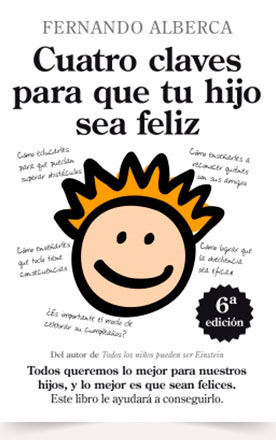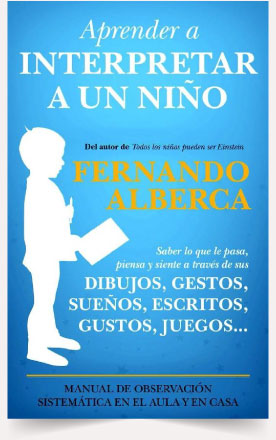ED. TOROMÍTICO (ALMUZARA)
3ª edición
277 PÁGS.
ISBN: 978-84-15943532
For all ages and especially for parents and educators of boys and girls from 0 to 10 years old.

Guía para ser buenos padres
The pillars of good education
All fathers would like to be remembered as good fathers. But, objectively, many today find great difficulties in achieving that aspiration. However, this task can be learned. This is an effective guide to achieve it, thus achieving improvement and happiness for everyone: parents, children, family and society.
This book explains how to become good parents from day one. To do this, those unique occasions that every parent must take advantage of are addressed, such as pregnancy or the first three days after birth; the unique relationship that is forged between mother and child; the most effective exercises for babies; how to tell if a baby is mature or immature; tips for choosing toys; how to contribute to the social adaptation of children; the role of grandparents and other educators; how authority and flexibility must be combined today; how parents can govern their children’s jealousy, tantrums and other behavioral pulses with parents; how to talk to your children and get them to communicate on time; how unpleasant news, such as separation or death, should be communicated; how and when to talk about sex; how to be alert during the complex school age; the relationship between affectivity and school success, the creation of a happy family environment or the twenty pillars of good education, among other keys.
A book that will undoubtedly be very useful for anyone who is a father or mother, and that will most likely become a bedside book in the increasingly complex task of being good parents.
ÍNDICE:
- El reto apasionante de una obra maestra
- 20 pilares de la buena educación
- La noticia del embarazo
- Los tres primeros días de un bebé
- La relación especial entre madre e hijo
- Manifestaciones para saber si un bebé es más maduro o inmaduro de la media
- Ejercicios para bebés y niños, y algunos consejos
- Los juguetes. Cómo elegirlos
- Su adaptación social
- El papel de la madre y el padre
- El papel de los abuelos y otros educadores
- ¿Qué influye más genética o ambiente?
- No basta el ejemplo
- Autoridad y flexibilidad: la obediencia eficaz
- La relación amor-autoridad-libertad
- Las obligaciones del niño
- El gobierno de los celos
- Conducta, pataletas y otros pulsos con los padres
- Malas noticias: la separación y la muerte
- El hábito del sueño
- Cómo y cuándo hablar de sexo con los hijos
- La edad escolar
- Afectividad y éxito escolar
- Ser felices y hacernos felices: el ambiente familiar
















